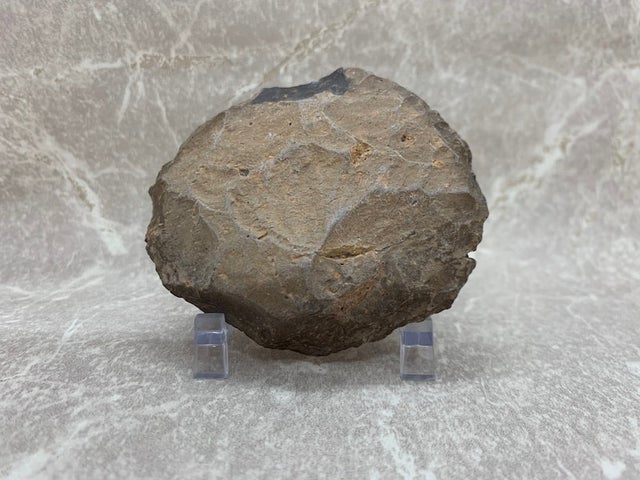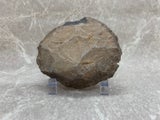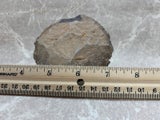- Artifacts
- >
- Ancient Stone Axes
- >
- Acheulean handaxe
Acheulean handaxe
This handaxe was made and used by a group in the early line of humans called Homo erectus (ergaster) between 900,000 and 1.2 million years ago. It was surface-collected in Northern Africa from an exposed Acheulean site in the Sahara Desert. This beautiful Lower Paleolithic tool demonstrates the advanced thinking and and complex design possessed by primitive humans and helps us see just how intelligent our ancestors were. Prior to these ancient Saharan Acheulean handaxes, only very crude flake tools existed in the human fossil tree.
As with most Lower Paleolithic tools from North Africa, the countless millennia of wind exposure has formed a fantastic desert varnish or patina across the surface. The workmanship on this axe is amazing and demonstrates the incredible technological understanding used by these ancient tool makers. The preservation is remarkable, as it is hundreds of thousands of years old.
This hand axe has NO REPAIR AND NO RESTORATION.



